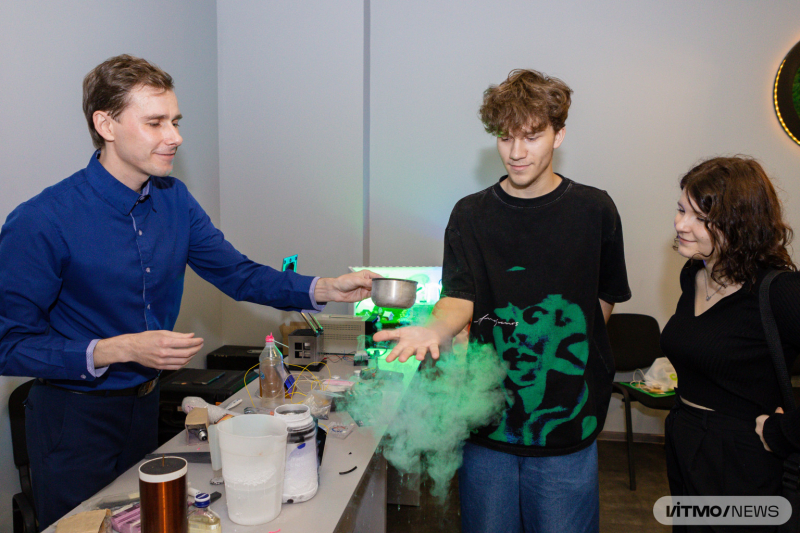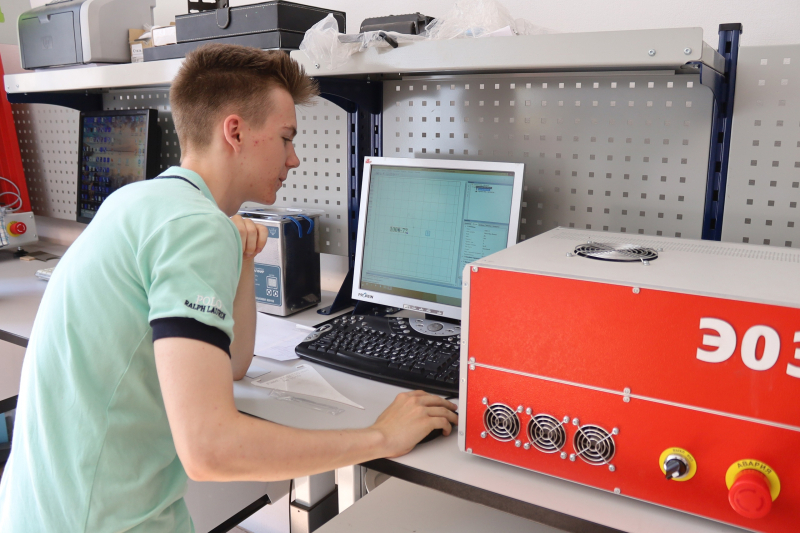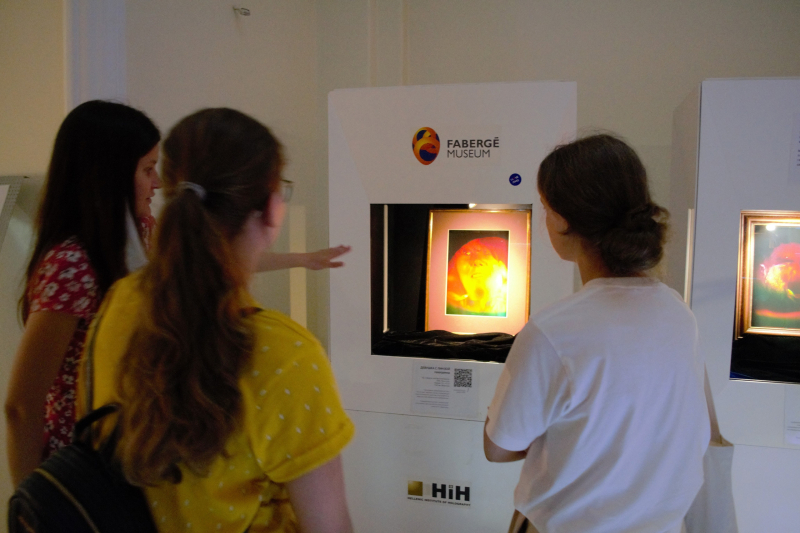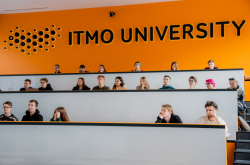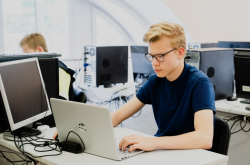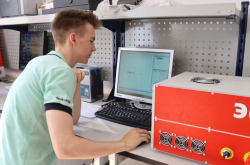Contents:
Learn the basics
-
Laser Creatives Laboratory
Made for: students of grades 8-9 who want to work with lasers and have a passion for hackathons.
Format: on-site.
This project is organized by ITMO’s Institute of Laser Technologies. Over a short period of time (from one day to a week) students attend topical lectures and workshops by experts from ITMO and Laser Center.
Benefits of the course: the knowledge gained at the lab helps the participants to come up with new ideas for laser applications. The teams with the best ideas receive ITMO merch.
A workshop on laser processing of surfaces. Photo by Dmitry Grigoryev / ITMO.NEWS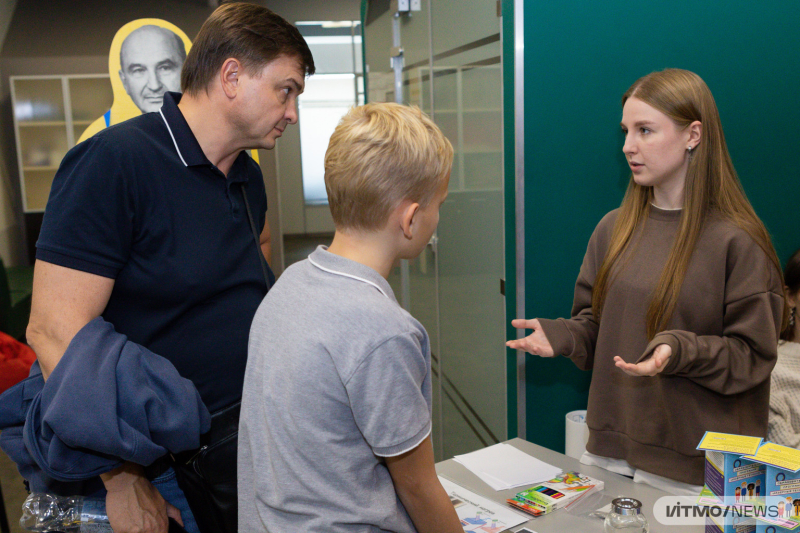
Develop your project
-
Summer School in Laser Technologies
Made for: students of grades 8-11 who are making their first steps in laser physics
Format: on-site.
The week-long course is typically held in late June. There, students learn about ITMO and the labs of its Institute of Laser Technologies, as well as various applications of lasers (such as sensors, new materials, and holograms).
Benefits of the course: guided by researchers from ITMO’s Institute of Laser Technologies, the participants can prepare their own theoretical or empirical studies and then present their results at a report contest. Winners gain additional points when applying to ITMO’s Bachelor’s programs.
-
International Research and Educational Center for Physics of Nanostructures
Made for: 10th grade students interested in nanomaterials
Format: on-site.
Over a two-week-long course in June, students attend lectures on nanomaterials and soft skills by the center’s researchers.
Benefits of the course: in small groups (3-4 students), participants can conduct their own studies, e.g., analyze the chiral molecular structures or developing nanostructure sensitizers for photo- and sonodynamics of oncological and bacterial infections. At the end of the school, students defend their projects and earn three additional points that they can use when applying to ITMO.
In 2023, the school welcomed 24 participants. According to Anna Orlova, a professor at the International Research and Educational Center for Physics of Nanostructures, the team is planning to expand the program to include materials for students of grades 8-9 and 11 in response to demand.
Anna Orlova. Photo by Dmitry Grigoryev / ITMO.NEWS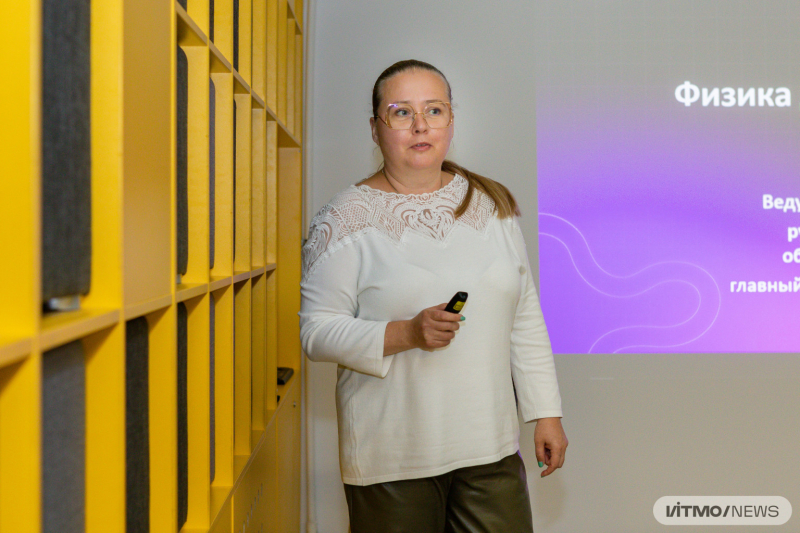
-
PI group training for school students
Made for: students of grades 9-10 from St. Petersburg and Leningrad Oblast who are interested in nanomaterials and turning research into products.
Format: on-site.
Principal investigators (PIs) are heads of research who have a number of responsibilities: they manage their teams, set the direction for research, and look for grants, funding, or partners who will sponsor their studies.
This course is meant to show school students that research can be conducted with a project-based approach – and draw their attention to essential skills for PIs, including team and time management.
Teams of participating students compete in a materials science hackathon, where they can choose one of three fields: FoodNet (smart packaging), Sensorics (gas sensors), and EnergyNet (heat and electricity generation in urban environments).
Benefits of the course: the winning team got the chance to continue their research within the project Functionalized carbon nanoparticles at ITMO. There, the students will be developing nanoparticle-based luminescent composites that can be used as ink in sensor trademarks. This year, work on the project will start in October.
A robotics workshop. Photo by Dmitry Grigoryev / ITMO.NEWS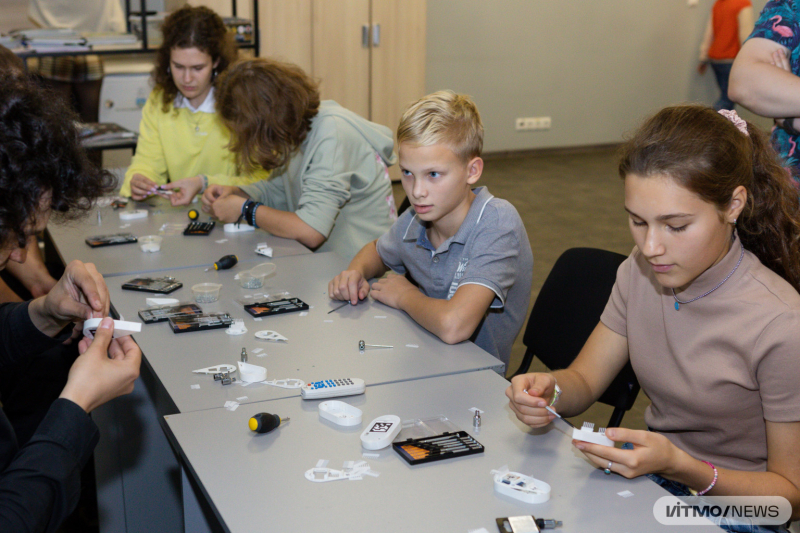
Discover your career
-
ITMO Seasonal Laser Technologies School
Made for: students of grades 8-11 interested in a career in the field of laser technologies
Format: on-site.
The school consists of two stages. During the first stage (October-January), students gather once a week to attend lectures and workshops by the staff and students of the Institute of Laser Technologies, as well as representatives of the industry. The students learn about the nature of laser radiation, its interactions with different substances, and the differences between various lasers and their applications.
Starting in February and through April, the students work at ITMO labs on individual and group research projects under the supervision of curators. The subjects of their projects include thin film for toxic gas detection, laser-etched ID tags for commercial products, holographic anti-counterfeiting markings, and materials imbued with new properties such as water repellency, biocompatibility, wear resistance, electric conductivity, and so on.
Benefits of the course: the participants get to conduct their own research and present its results at the national Congress of Young Scientists at ITMO. Winners of the event’s reports contest receive bonus points when applying to Bachelor’s programs at ITMO.
Visitors of the Russian Say of Physics received laser-printed personalized wishes. Photo by Dmitry Grigoryev / ITMO.NEWS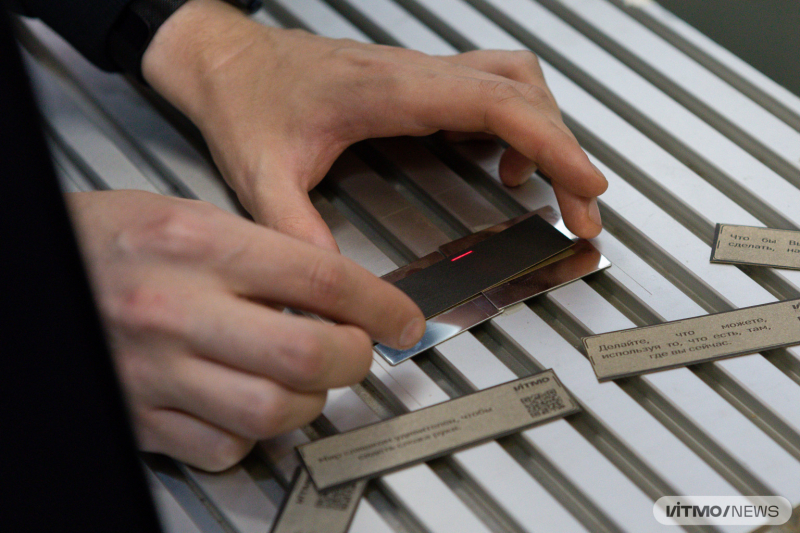
-
Summer practice at ITMO Faculty of Physics
Made for: students of grades 9-10 who want to learn more about working in physics
Format: blended (on-site and offline).
The event is split into two sections. First, the students learn all about the Faculty of Physics and complete a special physics course. Then, they are sorted into small teams and tasked with developing a science project under the supervision of the faculty’s teachers and scientists. For example, in 2022 the students attempted to boost antenna signals with fruit, synthesized biocompatible vessels for drug delivery, and designed a functional light diode based on halide perovskites.
Benefits of the course: the top students are invited to complete a further practical program that lasts from October till May. In that time, they get to work on a full-fledged research project under the guidance of Faculty of Physics staff – and even publish their findings in a scientific paper.
Application process
In most cases, students simply need to provide their contact info and school number when applying via the VK page of the corresponding university department; a few of the schools require a motivation letter or a list of achievements.
The staff of ITMO’s School of Physics and Engineering elaborated on opportunities for school students during presentations, lab tours, and lectures conducted as part of the Russian Day of Physics. The event took place on September 17, the birthday of celebrated Russian scientist and inventor Konstantin Tsiolkovsky, at 25 engineering universities around the country, including ITMO. The participants also got to test their knowledge during a nationwide physics quiz. During numerous workshops, they tried their hand at designing robots and familiarized themselves with laser systems.
